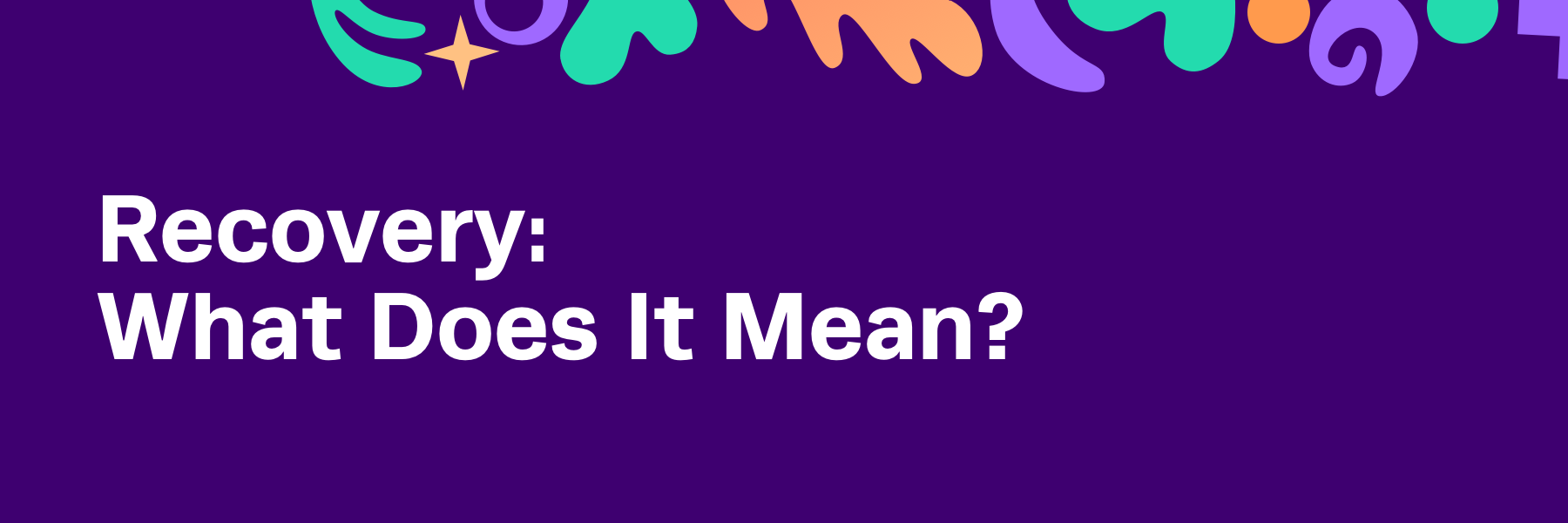What Does Recovery Mean? A Closer Look

You might think the definition of “Recovery” should be fairly straight-forward, particularly for those of us in the addiction treatment community. After all, it’s at the heart of what we do and is the ultimate objective for all our patients. While DSM and ASAM clearly define “Substance Use Disorder”, I’ve come to discover that the matter isn’t all that simple. I believe we can all agree that “Recovery” certainly indicates improvements, someone who has turned a corner in returning to sobriety. It also evinces an impression of permanence; a new state of being. However, beyond that things are a bit more tricky. With each new study and evolutionary treatment technique, the term “Recovery” becomes more opaque, like the experience of walking closer to an impressionistic painting by Monet. The parameters are always slightly different, there’s a lack of uniformity. More and more, I’ve come to appreciate that “Recovery” like “Beauty” is often in the eye of the beholder. This article will focus on trying to define that journey to Wellness and why doing so is so important.
A Clear Understanding
Getting a clear understanding of what we mean by Recovery is critical for many reasons. To begin with, it provides a source of comfort to the addict and his or her family; that things are moving in a positive direction. While we want to do all we can to foster that sense of security, it is imperative that we do so in a way that avoids the unnecessary damage of prematurely conveying false hope. Secondly, much of the framework we use in addiction treatment requires graduating from one level to another, based upon a patient meeting certain criteria.
With greater standardization in what is meant by those criteria and the word “Recovery” itself, we will be better prepared to universally serve our patients. Finally, as with all aspects of medical care, we are results driven, which requires uniformity to ensure we’re comparing apples-to-apples, so to speak. With the industry’s movement toward “success based treatment”, getting to the heart of defining how we will measure “Outcomes”, or success of treatment, will become more important than ever.
Mention Recovery and the first idea that typically comes to mind is “abstinence”, the complete discontinued use of the substance being abused. However, in the review of many studies, even abstinence proves to be a relative term. According to a March 2012 study by William White, MA, entitled “Recovery/Remission from Substance Use Disorders“, which analyzed 415 studies over a period of almost 150 years.
The term abstinence has alternatively been defined as follows:
- Continuous abstinence from a primary drug.
- Essential or virtual abstinence, where a relatively negligible amount of the primary drug is consumed post-treatment.
- Complete abstinence, not only from the primary drug being abused, but from all drugs.
- Involuntary abstinence via hospitalization or incarceration.
Then, of course, there’s the question of how long one needs to be abstaining post-treatment, to be considered in “Recovery”. Some studies are satisfied with as little as 3 months under one’s belt, while most require a longer duration. The reality though, is that it takes most people several attempts at Recovery for it to finally take hold. Moreover, there’s the issue of Medically Assisted Treatments, commonly referred to as MATs. While shrouded in some controversy for simply substituting one drug for another, the US Surgeon General’s Report entitled ‘Facing Addiction in America’ (the “Report”) nonetheless reviewed several of those options quite favorably, after attempts at complete abstinence have come up short and provided they are implemented in conjunction with a behavioral therapy program. Lastly, there’s the fact that even when a person achieves full Recovery, under even the most stringent of criteria, they could still remain substantially impaired in terms of physical health, emotional balance and interpersonal functioning.
The difficulty of this challenge is further reinforced when it comes to estimating the number of people in Recovery, as highlighted in the Report. When self-reporting, individuals are more likely to admit they ‘formerly’ had a substance abuse problem, than they are to admit being in the midst of a problem. So, it appears that with some experience, self-reflection and a change of habits, it’s easier for people to be honest with themselves. As it turns out, family members also under-report substance abuse. One additional issue is that survey results differ based on how the questions are asked. People are more likely to answer ‘yes’ to the question “have you ever had a problem with drugs or alcohol?” than they are to “do you consider yourself as a person in recovery?” This helps to explain why the results of six large studies referred to in the Report had results ranging from 5.3% to 15.3% of US adults in remission from substance use disorder.
Embrace Recovery Values and Beliefs
So, what can we do about this? I think the best first step is embracing the ‘Recovery Related Values and Beliefs’ referred to in the Report, for all forms of treatment.
Those values and beliefs are set forth as follows:
- People who have substance use disorders have essential worth and integrity.
- We must combat the shame and discrimination of addiction that keeps people from treatment.
- Recovery can be achieved through various methods, no one solution has a monopoly as the best technique.
- Access to high quality treatment is a human right (and thanks to the Parity Act, a legal right).
- People in Recovery, and their families, have valuable experience and encouragement to offer others still struggling.
Encourage Increased Discussion
The next move, is encouraging greater dialogue and cooperation across all spectrums of treatment. From 12 Step Programs to Recovery Housing, from Detox to Recovery-Based Education. The more we all communicate with each other, the more we can learn and the better we can transition our addicted patients between levels of care.
Focus on Prevention and Education
Thirdly, it is vital for the Addiction Treatment Community to develop better ‘earlycare’ and education programs. The earlier in life and more quickly we assist the substance abuser in coming to terms with his addiction, the easier and less expensive the disease is to treat. This is just common sense. A friend of mine went for a colonoscopy at age 40. The doctor found two polyps and one tested positive for malignant cancer. They simply snipped off the polyp, ran a battery of tests to ensure that there was no more cancer anywhere else, and he now follows up bi-annually. A similar concept applies to catching addiction in its early stages. That’s why we bought “InRecovery” magazine and website; we have a moral commitment to spread that message, and are investing heavily to do so.
Enhanced Aftercare to Extend Active Recovery
Finally, we need to focus on ‘aftercare’, which is really all about “Recovery Maintenance” – the essence of Recovery. The more invested someone is in his or her Recovery, and the more family and friends are involved in the process, the less likely he or she is to relapse. The more quickly we get someone back on the wagon after a relapse, the more likely Recovery will again take root. We are excited about the dynamic Recovery Maintenance options we are developing and will soon be able to share them in helping to achieve successful results-oriented outcomes.
While the exact definition of Recovery remains elusive, I am hopeful that by starting this discussion, it provides all of us with interesting food for thought about how we can all better serve the community. We face many challenges as addiction treatment professionals and are afforded a unique opportunity to make a difference. Every so often, we need to lift up our heads from the daily planners and balance sheets to re-think some basics we take for granted, because the prospect of long-term Recovery truly brings new meaning to the old adage “it’s all about the journey, not the destination”.
Rely on Kipu to keep you ahead of change.
Subscribe to Kipu for behavioral health news, updates, community celebration, and product announcements.




